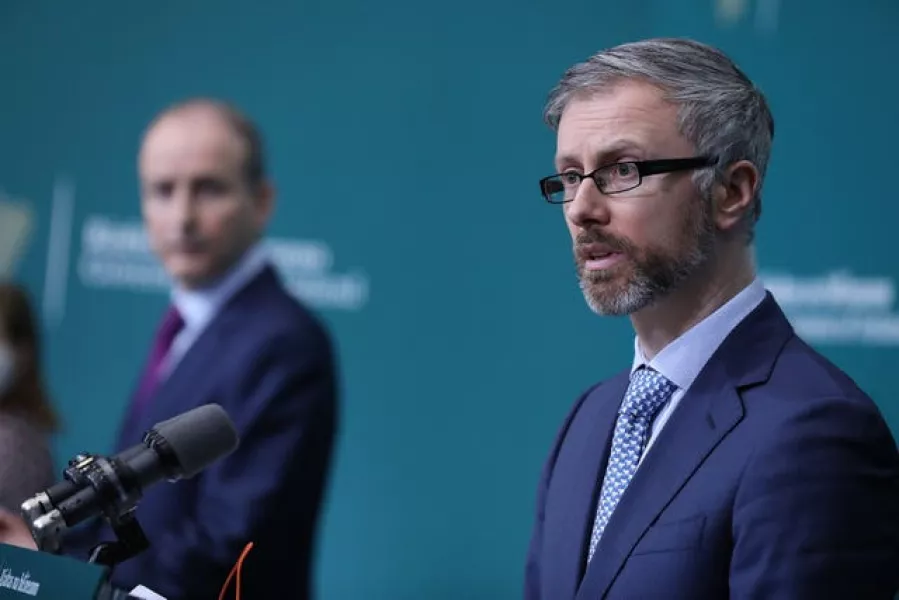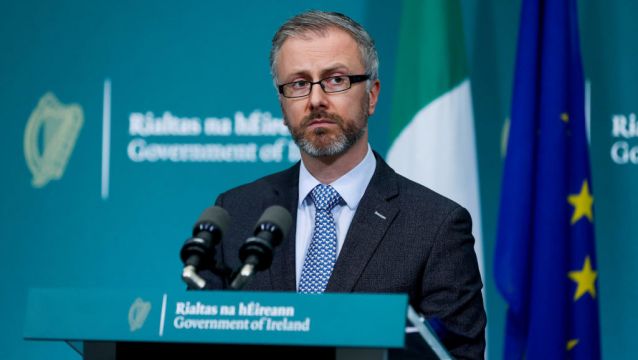New laws giving adopted people access to their birth certificates and early life information will finally address “failures of the State”, the Minister for Children has said.
Roderic O’Gorman published the long-awaited Birth Information and Tracing Bill on Wednesday, which he said would give adopted people and others the rights to personal information that they have been denied for too long.
Successive governments have failed to legislate on the issue, saying the right to privacy of the mother outweighed the rights of adopted people to information such as birth and baptismal certificates.
Adoptees will be given priority to access such information, while birth mothers will be able to state a “no contact” preference which will be relayed to adopted children, if they wish.
Mr O’Gorman said: “I’d like to acknowledge that this legislation today would not have been published without the years of campaigning, of perseverance, of hard work by many thousands of adopted people in Ireland.
“This was a fight they never should have to engage in the first place.
“Because as I said, the State, for years, repeatedly failed to vindicate the most fundamental right of adopted people, the right to know their origins.
“I believe that this Bill today represents a real step in addressing and redressing that failure of the State and finally resolving this issue of access to information for adopted people.”
Today, I published the Birth Information and Tracing Bill, which will, for the first time, provide a statutory right to every adopted person in Ireland, and those now living abroad, to full and complete information about their birth, their early life and their origins. pic.twitter.com/tCVUSyWD4k
— Roderic O’Gorman TD (@rodericogorman) January 12, 2022
Minister O’Gorman was speaking on the one-year anniversary of the Commission of Investigation report into Mother and Baby Homes.
He said the legislation, which will go to second stage in the Dáil next week, would give access to information that has been “de facto denied to thousands for decades”.
In addition to unrestricted access to birth and baptismal certs, he said it will provide “information about a person’s early life circumstances, where they lived, if and when they were baptised, how long they spent with their mother.
“Information about a person’s care as an infant, who cared for them as a baby or a child in a care arrangement, who were they boarded out with.
“Key medical information about themselves and their genetic relevant relatives, including information on hereditary medical conditions where these exist.
“And any provided items such as photographs, letters, or mementos, intended for them for which remained in the possession of an institution or another organisation.
“These measures taken together represent a massive step forward for how Ireland respects and vindicates the rights of the adopted and all those who have questions about their origins.”

The provisions in the Bill will extend beyond adoptees and will also apply to people who were boarded out, peoples whose births were illegally registered, and who has “reasonable grounds for suspecting that they may have been subjected to illegal or incorrect birth registration”.
The Bill establishes a national tracing service on a statutory footing for the first time.
“This will better allow adopted people or parents whose children were adopted to leave information for each other, or indicate that they would like to make contact” Mr O’Gorman said.
“This service will be used not just by persons who was adopted, boarded out or illegally registered, but also by their parents, grandparents, siblings and other extended family and friends.
“The new tracing service will work in conjunction with a new contact preference register, whereby adopted people and parents whose children were adopted can indicate if they would like to make contact, share information or indeed not to have contact.”
There have also been a number of changes to the general scheme of the Bill, published eight months ago, on foot of feedback from the adopted community.
Mr O’Gorman said: “Following concerns about the design and the focus of the information session used to communicate no contact preference, the information session in this Bill need longer be an in-person meeting.
“Instead, a video call or a phone call to convey no contact preference will suffice.
“The requirement for social worker to be involved in this element has also been removed. Though those remain optional if requested.
“The information conveyed will now contain an explicit recognition of the identity rights of the applicant, the adopted person, and their right to access their birth certificate and birth information.
“This ensures that the focus of the meeting is not exclusively on imparting the contact preference.
“In specific circumstances, a next of kin will be able to avail of and use this legislation to access information about a family member.
“This is an important evolution for the Bill and brings into the frame children of deceased adopted people, who have questions about their parents origin and by extension, their own origins.

“The definition of early life information has been expanded to provide for the release of baptismal certificates and entries into the baptismal register.
“Several adopted people indicated to me that that access to baptismal information is also of clear importance. So we have included this in the new draft Bill.
“Finally, in response to concerns raised by the mothers of adopted people, about the use of the term ‘birth mother’ to describe them in the original Bill, this term has now been amended to the term ‘mother’ throughout the legislation.”







